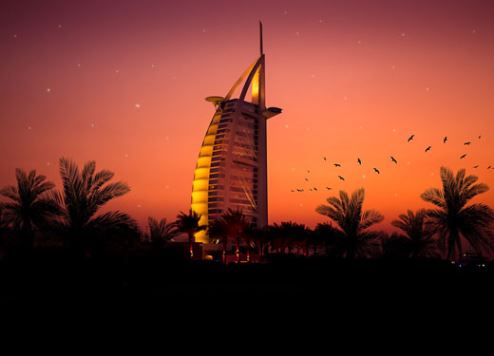Hospitality HQ: How Dubai's hotel sector is riding a wave of success

Dubai’s hotel occupancies are set to grow at double-digit rates over the next two years according to a new report
Dubai’s booming hospitality sector is set to enjoy sustained growth in the period leading up to Expo 2020, with a new study predicting occupied room nights in the city will reach 35.5 million annually in 2019, representing a robust 10.2% compound annual growth rate (CAGR) over the next 24 months.
The study, which was commissioned by Dubai’s Department of Tourism and Commerce Marketing (Dubai Tourism), revealed the emirate’s room supply will reach 132,000 by the end of 2019, growing at a two-year (2017-2019) CAGR of 11.1%.
Meanwhile, occupancy levels are forecast to remain at strong levels despite growth in capacity, maintaining the attractiveness of the sector to hotel investors and developers.
With concerted efforts by Dubai Tourism and other industry stakeholders to raise awareness in established and emerging source markets, the duration of travel from new and existing segments is expected to grow further in the medium term, positively impacting demand for room nights, which is in turn expected to outpace visitor growth over the coming 24-48 months.
Commenting on the report’s findings, HE Helal Saeed Almarri, director general of Dubai Tourism said: “Dubai’s hotel industry remains at the forefront of cross-sector efforts to drive tourism growth, as we collectively work towards realising our Tourism Vision and enable our 2020 goals. Dubai’s position as the fourth most visited city in the world and the consistent growth in overnight visitation has been achieved in large part thanks to the efforts of our committed stakeholders in the domestic hotel and hospitality sector.
“With international and local investors, and operators continuing to actively pursue opportunities in Dubai, we expect to see not only sustained growth in inventory in line with our projected demand for occupied nights, but also further diversification across various asset classifications, to ensure that as a city we are the most globally competitive in providing our visitors the optimal range of options that cater to their preferences across the spectrum of hospitality offerings.”
At the end of 2017, Dubai’s hotel inventory stood at 107,431 rooms, marking a 4% increase year on year. Overnight visitors grow an impressive 6.2% resulting in a total figure of 15.70 million.
The industry’s robust performance is particularly significant as it came amid challenging economic and political conditions across key source markets, including the volatility impact of fluctuating oil prices and Brexit in the United Kingdom.
In the four years to 2017, Dubai’s hotel inventory grew at a CAGR of 5.9% and a notable trend seen over that period was the development of more affordable mid-scale offerings. Building on the momentum since 2013, room inventory in the three- and four-star categories is projected to continue to grow at 10% and 13% respectively through to the end of 2019, according to the report.
The ongoing diversification of Dubai’s hotel sector is part of a strategic focus designed to broaden the city’s tourist base. The goal of this strategy is to attract larger volumes of visitors from a variety of segments in new and emerging source markets.
The success of this strategy is evidenced by increased demand for more value-friendly options, as well as longer-stay accommodation options.
According to the report, visitors to Dubai are expected to continue to gravitate towards options that offer flexibility, diversity, and value, particularly in light of the continued growth in the family audience, and the emergent rising share of the FIT (families and independent travellers) segment from high growth Asian markets.



